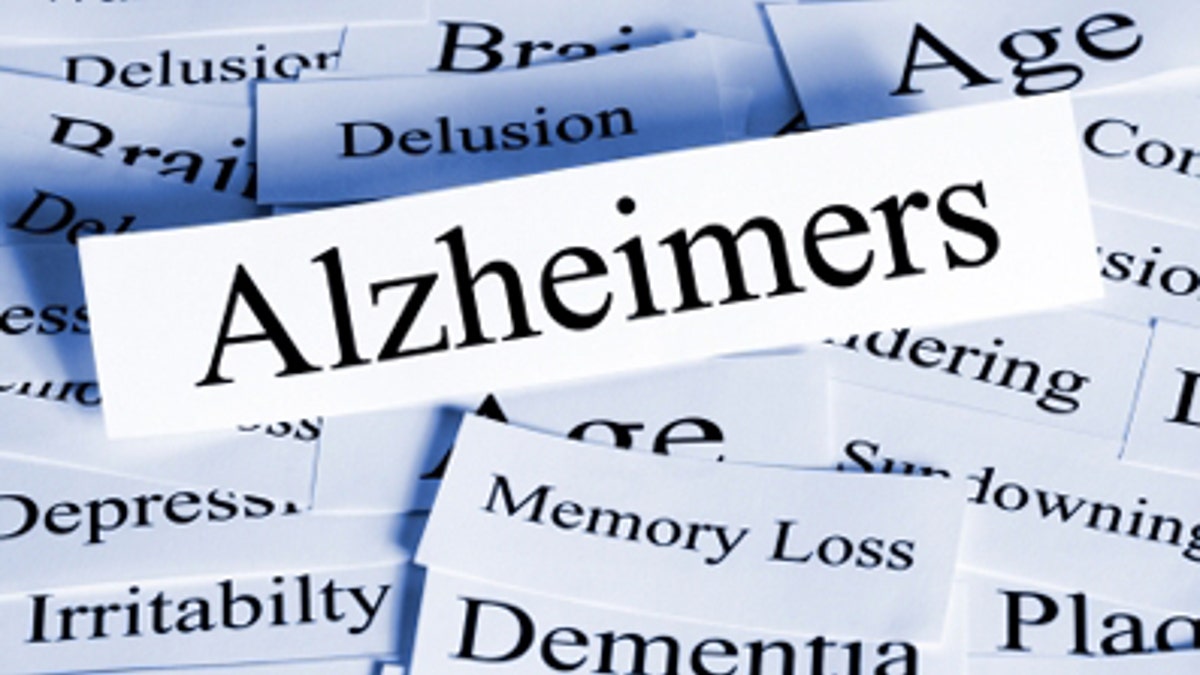Dr. Siegel reassures Alzheimer's is not contagious after new study on disease
Dr. Marc Siegel, a Fox News medical contributor, on the link between a banned shot and Alzheimer's and how this study may have revealed more information about the disease.
Alzheimer's is a disease that mostly affects older adults, and its most common symptom is a decline in memory.
There are nearly 7 million Americans who live with Alzheimer's, according to the Alzheimer's Association, and this figure is expected to rise.
By 2050, it's projected that 13 million will have the disease, according to the source.
A person with Alzheimer's can experience many difficulties in everyday life, such as getting lost, having trouble completing simple tasks and having a hard time communicating with others.

There are nearly 7 million Americans who live with Alzheimer's. (iStock)
Below, you can find early warning signs of the disease, the age when it is most common and details about the different stages of Alzheimer's.
- What are some early warning signs of Alzheimer’s?
- At what age does Alzheimer's appear?
- What are the stages of Alzheimer's?
1. What are some early warning signs of Alzheimer’s?
Alzheimer’s is different for everyone, so there isn’t a "one size fits all" set of symptoms that everyone with the disease develops.
The severity of each symptom in each individual is going to be different. There are different symptoms associated with Alzheimer's based on how severe the disease is.
That said, there are some common symptoms that may start to appear in those with Alzheimer's early on.
Most of the early signs are going to have to do with a person's memory. The most broad but common symptom is memory loss that impacts daily life.

If you start to notice symptoms associated with Alzheimer's in a loved one or in yourself, it may be time to see a doctor. (iStock)
For example, this could mean forgetting about appointments, forgetting information just recently given or forgetting a recent conversation.
THE 8 BIGGEST ALZHEIMER'S DISEASE MYTHS-AND THE TRUTHS BEHIND THEM
Another sign someone with Alzheimer’s might show is having a hard time planning things or solving problems.
People with Alzheimer’s typically have difficulty dealing with bills and following a set of instructions.
Losing track of dates and getting confused about location are other signs of the disease.
Around one of every 20 people who have Alzheimer's are under the age of 65.
Those who may have Alzheimer's tend to have a hard time completing tasks that are familiar to them and have some difficulty speaking. This could include not being able to follow a conversation and not being able to think of a certain word.
An additional sign is misplacing objects often or, more specifically, putting objects in places that don’t make sense.
ASK A DOC: ‘HOW CAN I REDUCE THE RISK OF ALZHEIMER’S DISEASE?' HERE ARE 3 TIPS
Lastly, some other signs you may see in those with the disease are disassociating with social activities, experiencing a change in mood and having poor judgment.

Alzheimer's has many symptoms. The most common is memory loss. (iStock)
It's important to consider that some of these symptoms may emerge with old age, but if these symptoms are frequently present and don’t just occur here and there, it could be a sign of Alzheimer’s.
If you or someone you love is experiencing these symptoms, it may be time to see a doctor.
2. At what age does Alzheimer's appear?
While the risk for Alzheimer's increases greatly for those of older age, it can affect younger people too.
Most commonly, Alzheimer's affects those who are over 65, according to the National Health Service (NHS).
For those who experience symptoms prior to that age, they fall into the early-onset category of the disease.
CLICK HERE TO SIGN UP FOR OUR LIFESTYLE NEWSLETTER
Around one of every 20 people who have Alzheimer's are under the age of 65.
Although people can develop Alzheimer's earlier in life, the largest risk factor for the disease is age. So, as a person ages, the risk of getting Alzheimer's increases.
3. What are the stages of Alzheimer's?
There are multiple stages of Alzheimer's that outline the progression of the disease. Each of these stages is going to come with some different symptoms, and original symptoms are going to get more severe.
The most common ways to broadly categorize the three stages of Alzheimer's disease are early (mild), middle (moderate) and late (severe).
In the earliest stage of the disease, a person can still primarily function on his own, according to the Alzheimer's Association. A person may still be able to drive and work.

There are three main stages of Alzheimer's an individual can experience. The symptoms will begin to become more prevalent with each stage. (AP Photo/Charles Dharapak, File)
Even though a person can function relatively independently at this stage, and symptoms may not be as clear, family, friends and a medical professional may begin to notice, according to the source.
The Alzheimer's Association lists situations such as forgetting a name, forgetting material just read and trouble planning as symptoms that could be present at this stage.
CLICK HERE TO GET THE FOX NEWS APP
Middle-stage Alzheimer's is typically the longest stage, the organization notes, and could go on for many years.
During this stage, symptoms will begin to become more apparent. Some symptoms listed by the organization present at this stage are being forgetful of personal history, moodiness, inability to recall personal information, confusion about whereabouts, trouble choosing clothing that is appropriate for the season or occasion, trouble with bladder control, changes in sleep patterns, wandering and behavioral changes.
In the third and most severe case of Alzheimer's, an individual will have difficulty communicating with others and will require around-the-clock care and support.
For more Lifestyle articles, visit www.foxnews.com/lifestyle.










































